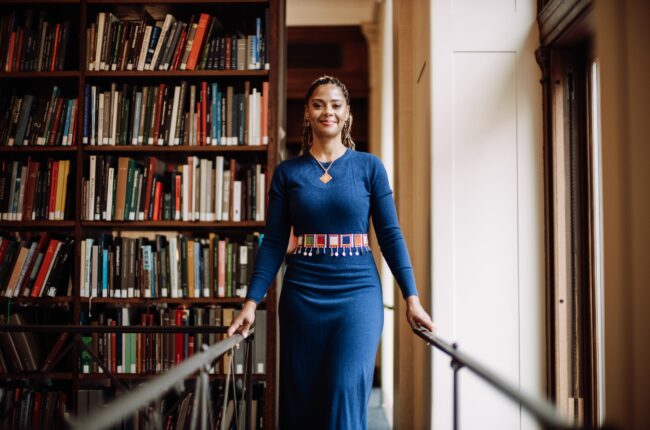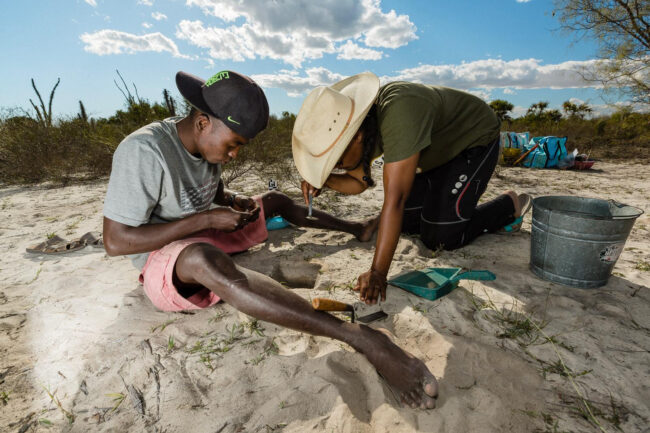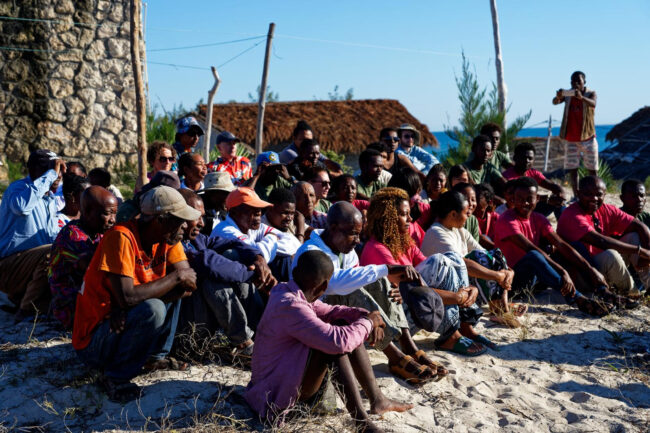
Kristina G. Douglass, an archaeologist whose community-based research uses lessons from the past to help communities understand how to adapt to climate change, has been named one of 22 MacArthur Fellows for 2025. The honor, often called a “genius” grant, recognizes exceptional creativity and dedication across disciplines and includes an $800,000 no-strings-attached stipend.
Douglass, an associate professor of climate at the Columbia Climate School and the school’s first faculty hire, investigates how human societies and environments have co-evolved and adapted to climate variability over time. Her research, based in southwest Madagascar, combines archaeology, climatology and conservation biology with close, longstanding collaborations with local and Indigenous communities. By understanding how people navigated environmental changes in the past, Douglass’s work provides clues on what makes conservation efforts succeed for both ecosystems and the communities that depend upon them.

“This recognition affirms that focusing on community practices and priorities as a researcher is absolutely necessary for our collective well-being and our future,” says Douglass. “It’s a resounding ‘yes’ to giving voice to communities facing some of the hardest impacts of climate change, while making sure the way we leverage science directly meets their needs.”
Raised in Madagascar, Douglass founded the Morombe Archaeological Project (MAP) in 2011 to study long-term human-environment interactions within the Velondriake Marine Protected Area of southwest Madagascar. When Andavadoaka, one of the fishing communities where the MAP team worked, was hit by a COVID-19 outbreak in 2020, Douglass mobilized some of her research funds to help buy protective equipment for residents. The MAP team, composed largely of local collaborators Douglass trained in archaeological methods, organized the delivery of bleach, sprayers and 1,000 cloth masks produced by a local sewing group. “Every member of that team feels like a family member to me,” she told Nature in 2021.
Douglass currently runs the Olo Be Taloha Lab (“Elders of the Past” in Malagasy) at the Lamont-Doherty Earth Observatory, which is part of the Climate School.
Other work, using satellite imagery, has shown that the land used by Indigenous communities for fishing, foraging and herding, is virtually indistinguishable from untouched areas nearby. The findings indicate that these traditional practices fit seamlessly into the environment, and may have even kept it ecologically stable.
Alexis Abramson, dean of the Climate School, says that Douglass is helping to advance the Climate School’s mission to link science with the social and cultural dimensions of climate change.
“Kristina studies how communities have sustained themselves without depleting their resources—lessons that matter as we face climate change and inequality.”
Douglass’s research emphasizes participatory, or co-produced knowledge, where researchers and local experts are equal partners in the scientific process. This approach has drawn international attention as a model for how science can be done fairly and with community input.

“From the very beginning of my work, I knew I was not going to be the ‘leading’ expert on the places we were studying,” she says. “The experts are the people who have multi-generational place connections.”
She believes the very practices that make us human, such as coming together for sharing food, stories and music, have long served as chains of transmission that carry information forward from previous generations.
“For thousands of years, such traditions have enabled communities to learn, innovate and endure environmental change,” she says. “Most people don’t go to a family meal or a dance gathering thinking it’s central to humanity’s future, but it is.”
Douglass joins a distinguished group of Columbia faculty and alumni whose creativity and impact have been recognized by the MacArthur Foundation. Past recipients include landscape architect Kate Orff, geochemist Terry Plank, ecologist Ruth DeFries as well as demographer Joel Cohen and agronomist Pedro Sanchez, among others.
For press inquiries, please contact Francesco Fiondella, [email protected].


